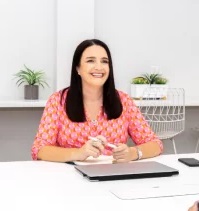
Can I Learn SEO On My Own?
With a little effort, you can turn ‘SE-Oh no’ into ‘SE -Oh Yes’!
Many people mistakenly believe that SEO is far too complicated and technical for a layperson to manage and that it’s best left to the experts (or those with big budgets). In fact, getting started is surprisingly easy and surprisingly affordable.
If you want to take charge of your website’s online visibility, all you need is a bit of time and patience. Search engine optimisation is really just about putting a set of processes in place which are aimed at getting Google to love your website and there are plenty of things that even a beginner can do. Yes, things can get a bit technical as you delve deeper into SEO and specialist input will probably be necessary, but the basic tools and techniques are very manageable and will result in a rise up the rankings.
Learn SEO On Your Own?
If you are keen to try your own SEO, you’ll find these key concepts useful as a starting point. And if you want a guiding hand through the basics, why not check out my new self-managed online SEO course? It’s designed especially for people who want to take ownership of their website’s SEO and learn the essentials whilst putting the theory into practice.
The SEO School is a great option for business owners and website managers who want to learn SEO in their own time, with expert support and advice when they need it.
In the meantime, here are my six key concepts that I suggest you master when starting SEO on your own.
Understand the Basics of SEO and What It Can Do for Your Website
The more you know about SEO and why it is so valuable, the better. The goal is simple. SEO is about structuring your website so that visitors and the search engine crawlers like what they see. The happier they both are, the more traffic you’ll attract, the higher you’ll be up the search engine rankings and the greater your likelihood of improved revenues. How’s that for motivation to get going on your SEO!
Start by Researching Your Keywords
Keyword research is the foundation on which all successful SEO strategies are built. You need to find those words and phrases that people will type into the search bar to find your business. The more time and effort you put into discovering these keywords, the greater your chances of being found.
You’ll use these keywords throughout your website structure, including in content, titles, headings, URLs and meta descriptions.
Use free tools like Keywords Everywhere or Google to find keywords that are relevant to your business, services or products.
Enjoy some of my other blog posts on Using Google Search for keyword research and Keyword Research Tips & Tricks to learn more about keyword research.
Learn About On-Page SEO and Off-Page SEO
On-page SEO is often described as a science, while off-page SEO is described as an art.
On-page SEO refers to the page-ranking factors you control on your own website, such as keyword usage, navigation, formatting, meta descriptions, image descriptions and so on. Off-page SEO refers to things that occur on other sites such as backlinks and reviews and because it relates to other people’s opinions of your online content, it is impossible to control.
When you’re starting off on your SEO journey, you’ll be focusing on learning elements that take place on your own website.
Read this blog post for more information about on-page and off-page SEO.
Content Is King
SEO is not about filling up your website with content stuffed with keywords and hoping for the best. It’s about creating quality content throughout your site, from your Home page and product pages right through to blogs and videos. It’s about carefully crafting content that has the right mix of keywords and information which meets the approval of the user and of the search engine crawlers.
Avoid duplicating content on your pages, and don’t copy and paste from other websites. Content needs to be original and relevant.
Length is also strength. From an SEO standpoint, Google values longer articles. They’re more likely to meet the site visitor’s expectations in their search for information and insights – but always keep them meaningful and relevant.
Read this blog for more information about Essential web pages for SEO
Focus on the User Experience
Google and the other search engines are increasingly concerned about the user experience and are constantly changing their algorithms to ensure they are satisfying users.
From an SEO standpoint, you need to ensure that things like your site structure, design, navigation and content are all primarily focused on making the user experience the best it can be. Things like dwell time (how long a person stays on your website) and organic click-through rate (CTR) are important indicators for Google which will help them determine the user experience.
Build Links From Other Sites
To give you an indication of just how important link-building is, consider this. Google has over 200 ranking factors – with links being in the top three!
A key element of SEO is building links from other websites to your pages. This gives your site authority and credibility, and shows the search engines that it’s trustworthy and useful to other users.
But there are links – and there are links. The search engines are extremely vigilant when it comes to links and will penalise a website if they believe that the links aren’t genuine.
Guest blogging, requesting links and engaging with social media are all good tactics for building quality links, but it takes hard work and sustained effort to get results. As I said earlier, on-page SEO is easier to master, but there are definitely benefits to be gained from spending time and effort on your off-page strategy as well.
Read this blog on Why backlinks are so important for SEO for more information.
If you’d like to learn more about SEO – check out The SEO School. I developed my online, modular, self-directed course specifically for busy business owners and website managers who want to take charge of their own SEO strategies – and succeed. Find out more or book your course at The SEO School.
Discover more handy tips in: How To Do SEO Research Using Google Search (For Free!) and SEO Tips You Can Use On Your Website In One Hour
FREE Community
Are you frustrated customers can’t find your website?
Join my FREE online community for SEO tips!
seo Freebies
Are you the best kept secret on the internet?
It’s time to change all that with my DIY SEO freebies!
The SEO Course
Do you have a website that’s not performing? Learn SEO and put your website to work!
Other Blog Posts...
We talk about how technology and digital communications have literally put the whole world at our fingertips, but the reality is that we still love local. And that’s why we have to love local when it comes to SEO. Why does local SEO matter? Local SEO is important because the days of relying on a Yellow Pages
AI is on everyone’s lips. All the talk is about what AI can do and what it is going to be able to do. Some people even have it taking over the whole world, sending humans into a life of servitude to machines and computer systems. Should we fear the future? If you’re a content creator, here’s some good news. This
It’s no secret that SEO requires a multi-pronged approach in order to be effective. Some elements are simple and easy to implement while others require more technical expertise, but each one plays a role in great SEO. This article covers one of the most important elements of SEO…backlinks. Backlinks are links to
Want free SEO support?
Then join my Facebook community…

If you’re looking for a supportive online group that share the same mission – to get found online – then this community is for you!
From SEO updates and tips to Ask Me Anything Fridays, this is your space to pick-my-brains.








